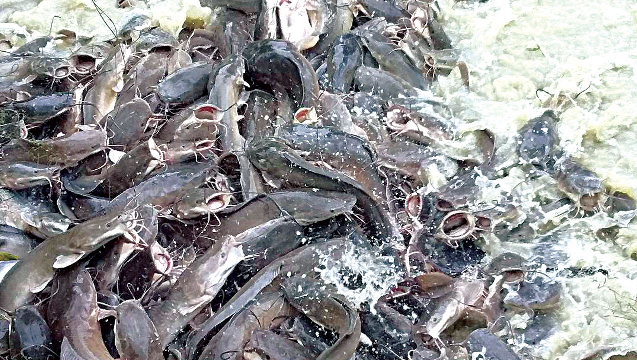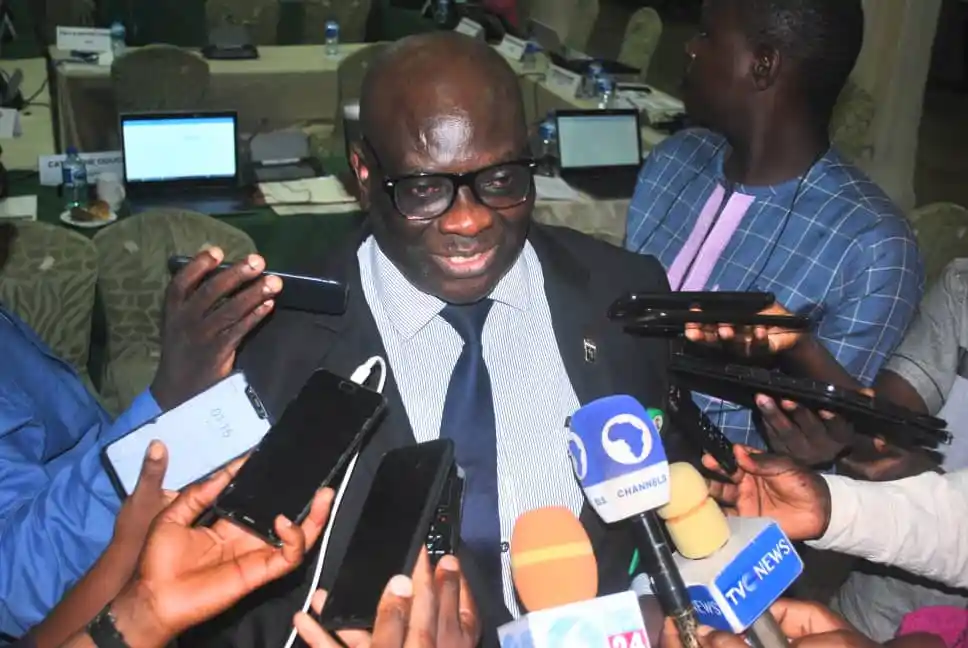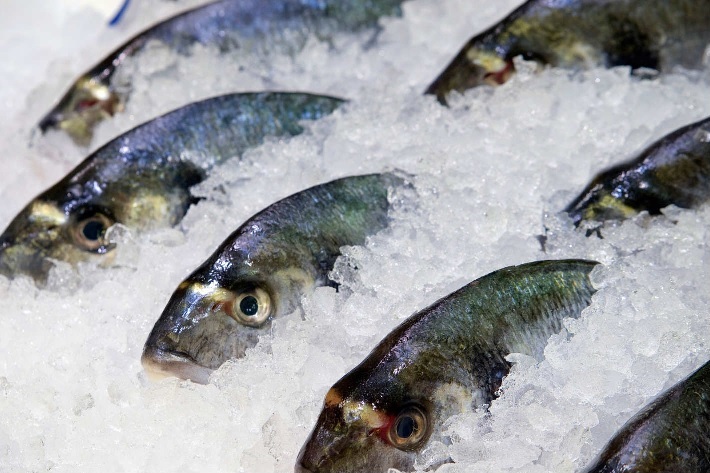https://www.kenyanews.go.ke/govt-is-working-to-improve-fisheries-sector/
The government is putting in place laws and regulations to enable small scale fishermen transition into commercial and industrial growers.
Rodrick Kundu, a Director in the State Department for Fisheries, Aquaculture & Blue Economy said the law encourages joint ventures where local people can partner with investors to exploit the potential that is in the oceans.
Speaking Tuesday during a meeting on climate change link for effective management and governance on matters Eco- fish, Kundu said that the government has recognised fisheries, aquaculture and blue economy as key sub sectors that contribute to national development.
Continue Reading
Source: https://www.kbc.co.ke/climate-change-threatens-kenyas-fishing-industry-experts/
Kenya’s fishing industry is staring at a bleak future due to the adverse impact of climate change on the country’s water bodies.
The sector which supports millions of small-scale farmers is grappling with dwindling catches and rising water levels. Experts are warning that millions of subsistence and artisanal fisheries are the most affected by worsening climate change even though they account for 40 percent of global catch annually.
Speaking at a conference on potential impacts of climate change on small-scale fisheries, it emerged that rising temperatures are currently interfering with aquatic habitats and affecting traditional breeding cycles leading to a lower catch.
Experts now say urgent collective interventions are needed to mitigate these adverse effects. According to marine life experts, can strengthen climate-ready fisheries management. Experts are warning that the threat to small-scale fishing is exacerbated by heightened human activities and climate change. They say these stocks will remain under threat not only from underinvestment but from extensive commercial activities.
Speakers attending the regional Eco-fish Integrated Programme Management Unit here in Nairobi have also said that the lack of policy support for small-scale fisheries and aquaculture are also affecting the fisheries sub-sector in the region.
The two-day conference convened by the Ecofish Integrated Programme Management Unit has brought together representatives from Kenya, Madagascar, Mauritius, Mozambique, Seychelles, and Tanzania who hope to follow up on capacity needs, gaps, adaptation, and resilience priority actions to safeguard against the rising challenges in the fishing sector.
View Full Post and Comments
By Joke Falaju, Abuja, 14 June 2022
Source: https://guardian.ng/business-services/fg-raises-concern-over-2-4-million-tonnes-domestic-fish-deficit/

The Federal Government, yesterday, raised concerns about the inability to meet up the 3.6million metric tonnes (mt) demand for fish as the country only produces 1.2million metric tonnes leaving a wide gap of 2.4million mt.
While the Federal Government has been encouraging backward integration in the fisheries sector to improve local production and reduce importation, Nigeria still leads among fish importing countries in West Africa despite abundant resources.
Continue Reading
By Mohammed Mohammed
Source: https://extraordinairepeople.com/2022/06/14/why-fg-targets-3-6m-tons-of-fisheries-annually/

Above: Director, Fisheries and Aquaculture, Federal Ministry of Agriculture and Rural Development (FMARD) Dr. Sampson Umoh, Nigeria
The Director, Fisheries and Aquaculture, Federal Ministry of Agriculture and Rural Development (FMARD) Dr. Sampson Umoh on Monday, said Federal Government has targeted 3.6 million tons of fisheries annually to boost local production, income generation amongst others.
The Director made this known during the Second Dialogue and Sensitization Meeting on Fisheries Governance Project 2 (FishGov2) with Regional Economic Communities (RECs) held at Chelsea Hotel, Abuja, recently.
Continue Reading
By James Emejo, June 15, 2022 12:30 am
Source: https://www.thisdaylive.com/index.php/2022/06/15/fg-importation-of-frozen-fish-drain-on-foreign-exchange/

The federal government has lamented the country’s continued importation of fish to bridge existing deficit, describing it as a huge drain on the scarce foreign exchange. Nigeria requires about 3.6 million metric tons (MMT) of fish annually to meet local consumption and currently produces only about 1.2 MMT. The deficit of about 2 MMT is supplemented by annual importation, a situation which further exerts undue pressure on foreign exchange.
Continue Reading
By Marla Simeon (Seychelles), Judith Akolo (Kenya), Jose ArturAriscado (Mozambique)
A buzz of activity fills the air as vendors’ shuffles to catch the eyes of passersby while others tries to guide the curious shoppers to their stalls. We are interested in one particular corner shop, the ‘Meat and Fish Supermarket’ run by a fishmonger named Mary Massawa.
While persistent gender inequalities prevent women from fully participating in economic opportunities and decision making, ultimately restricting the potential of the fishing sector, Mary has weathered it all. She started her fish trade business while she was a high school student, she tells us she would be chased away from school because her parents were so poor they couldn’t afford to pay for her school fees. The young student had to go to Lake Victoria to purchase fish from the fishers and then sell it at the market near her home, the proceeds are what she used to pay her school fees. On completing her high school education, she went ahead with her fish business which has thrived over the years.
Continue Reading
Blue Economy’ is a term many people, particularly in countries without direct access to the oceans and seas, may not be very familiar with. However, the term is slowly, seriously, and steadily gaining ground among economists, fisheries experts, regional and international organissations.
It is a term that all economic planners need to understand and familiarise themselves with so that it is properly estimated and integrated into national gross domestic products.
Continue Reading




